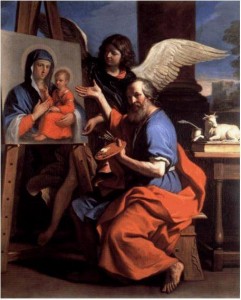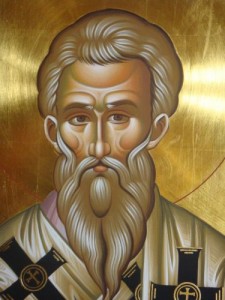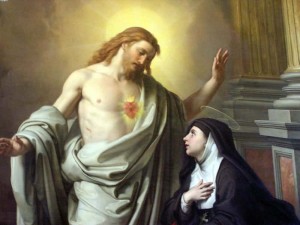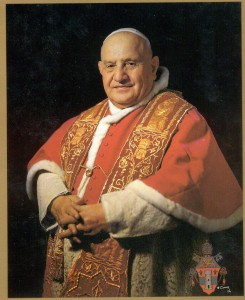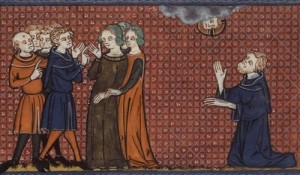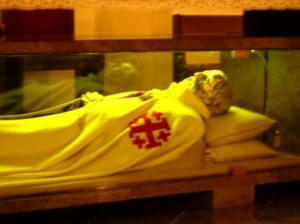The liturgical memorial of Blessed John Henry Newman is observed in the United Kingdom but it is not on the Ordo for Catholics in the USA. In time I suspect the Holy See will make it so for Catholics in the USA once Newman is canonized. In the meantime, we ask for his intercession privately.
To mark the Newman memorial here is a Vatican Radio interview with Monsignor Roderick Strange who authored John Henry Newman: A Mind Alive (2008).
Below is the second reading for the Office of Readings and the Mass Collect.
From the writings of Blessed John Henry Newman, Priest
(Apologia Pro Vita Sua, Chapter V: Position of My Mind since 1845, London 1864, pp. 238-239, 250-251)
It was like coming into port after a rough sea.
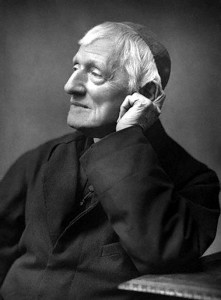 From the time that I became a Catholic, of course I have no further history of my religious opin- ions to narrate. In saying this, I do not mean to say that my mind has been idle, or that I have given up thinking on theological subjects; but that I have had no variations to record, and have had no anxiety of heart whatever. I have been in perfect peace and contentment; I never have had one doubt. I was not conscious to myself, on my conversion, of any change, intellectual or moral, wrought in my mind. I was not conscious of firmer faith in the fundamental truths of Revelation, or of more self-command; I had not more fervor; but it was like coming into port after a rough sea; and my happiness on that score remains to this day without interruption.
From the time that I became a Catholic, of course I have no further history of my religious opin- ions to narrate. In saying this, I do not mean to say that my mind has been idle, or that I have given up thinking on theological subjects; but that I have had no variations to record, and have had no anxiety of heart whatever. I have been in perfect peace and contentment; I never have had one doubt. I was not conscious to myself, on my conversion, of any change, intellectual or moral, wrought in my mind. I was not conscious of firmer faith in the fundamental truths of Revelation, or of more self-command; I had not more fervor; but it was like coming into port after a rough sea; and my happiness on that score remains to this day without interruption.
Nor had I any trouble about receiving those additional articles, which are not found in the Anglican Creed. Some of them I believed already, but not any one of them was a trial to me. I made a profession of them upon my reception with the greatest ease, and I have the same ease in believing them now. I am far of course from denying that every article of the Christian Creed, whether as held by Catholics or by Protestants, is beset with intellectual difficulties; and it is simple fact, that, for myself, I cannot answer those difficulties. Many persons are very sensitive of the difficulties of Religion; I am as sensitive of them as any one; but I have never been able to see a connexion between apprehending those difficulties, however keenly, and multiplying them to any extent, and on the other hand doubting the doctrines to which they are attached. Ten thousand difficulties do not make one doubt, as I understand the subject; difficulty and doubt are incommensurate. There of course may be difficulties in the evidence; but I am speak- ing of difficulties intrinsic to the doctrines themselves, or to their relations with each other. A man may be annoyed that he cannot work out a mathematical problem, of which the answer is or is not given to him, without doubting that it admits of an answer, or that a certain particular answer is the true one. Of all points of faith, the being of a God is, to my own apprehension, encompassed with most difficulty, and yet borne in upon our minds with most power.
People say that the doctrine of Transubstantiation is difficult to believe; I did not believe the doctrine till I was a Catholic. I had no difficulty in believing it, as soon as I believed that the Catholic Roman Church was the oracle of God, and that she had declared this doctrine to be
part of the original revelation. It is difficult, impossible, to imagine, I grant;—but how is it difficult to believe?…
I believe the whole revealed dogma as taught by the Apostles, as committed by the Apostles to the Church, and as declared by the Church to me. I receive it, as it is infallibly interpreted by the authority to whom it is thus committed, and (implicitly) as it shall be, in like manner, further interpreted by that same authority till the end of time. I submit, moreover, to the universally received traditions of the Church, in which lies the matter of those new dogmatic definitions which are from time to time made, and which in all times are the clothing and the illustration of the Catholic dogma as already defined. And I submit myself to those other decisions of the Holy See, theological or not, through the organs which it has itself appointed, which, waiving the question of their infallibility, on the lowest ground come to me with a claim to be accepted and obeyed. Also, I consider that, gradually and in the course of ages, Catholic inquiry has taken certain definite shapes, and has thrown itself into the form of a science, with a method and a phraseology of its own, under the intellectual handling of great minds, such as St Athanasius, St Augustine, and St Thomas; and I feel no temptation at all to break in pieces the great legacy of thought thus committed to us for these latter days.
Responsory Ephesians 3:7, 10; John 16:13
R. Of this Gospel I was made a minister according to the gift of God’s grace which was given me by the working of his power,* that through the Church the manifold wisdom of God might be made known.
V. When the Spirit of Truth comes, he will guide you into all the truth. *That through the Church the manifold wisdom of God might be made known.
Let us pray.
O God, who bestowed on the Priest Blessed John Henry Newman the grace to follow your kindly light and find peace in your Church; graciously grant that, through his intercession and example, we may be led out of shadows and images into the fulness of your truth.

